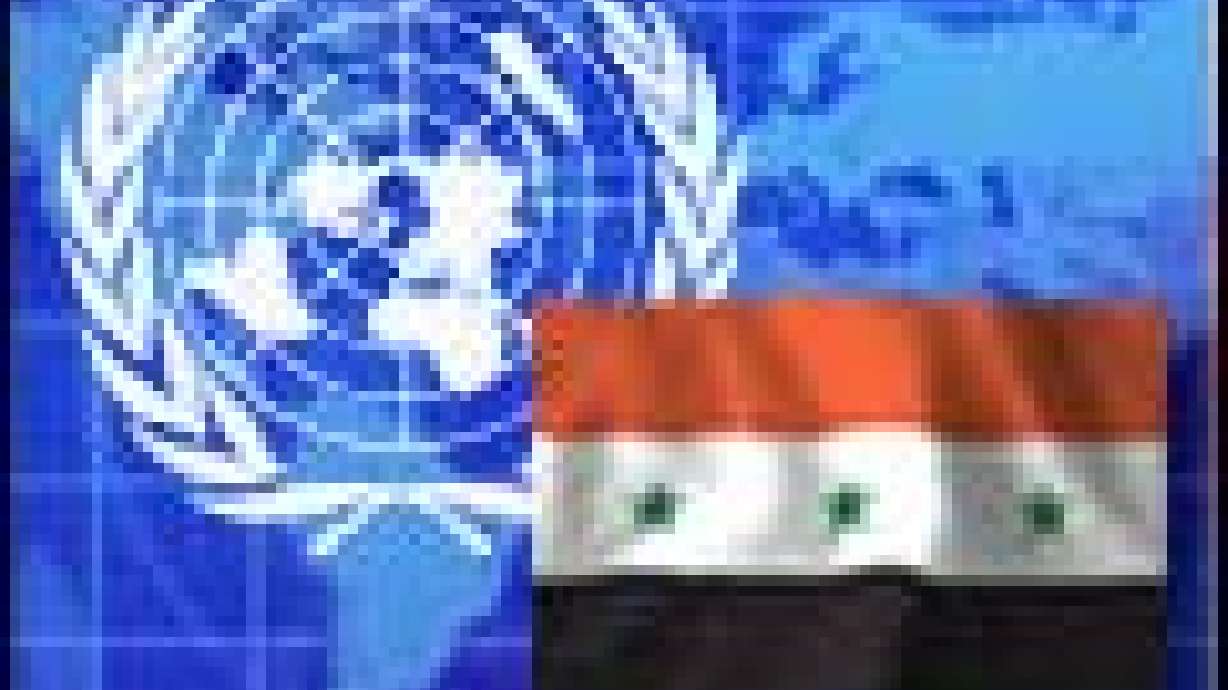Estimated read time: 3-4 minutes
This archived news story is available only for your personal, non-commercial use. Information in the story may be outdated or superseded by additional information. Reading or replaying the story in its archived form does not constitute a republication of the story.
BAGHDAD, Iraq (AP) -- Iraqi officials dismissed Secretary of State Colin Powell's anti-Iraq case before the U.N. Security Council on Wednesday as a collection of "stunts," "special effects" and "unknown sources" aimed at undermining the work of U.N. arms inspectors in Iraq.
"What we heard today was for the general public and mainly the uninformed, in order to influence their opinion and to commit the aggression on Iraq," Lt. Gen. Amir al-Saadi, a presidential adviser, told reporters.
Al-Saadi suggested that monitored Iraqi conversations played by Powell were fabricated, that defector informants were unreliable, and that satellite photographs Powell displayed "proved nothing."
He noted that similar earlier photos were checked by U.N. teams who found allegations of suspicious activities to be unfounded.
Al-Saadi and Maj. Gen. Hossam Mohamed Amin, chief liaison to the U.N. arms inspectors, appeared in a government conference room teeming with hundreds of journalists, Iraqi officials and visiting European Parliament members, who closely followed Powell's address on live satellite television. Powell's New York appearance was not broadcast on Iraqi TV, which instead aired an interview President Saddam Hussein gave to former left-wing British lawmaker Tony Benn.
Powell's presentation cited several examples of allegedly suspicious activities by the Iraqis. Such locations are now under regular monitoring by U.N. inspectors.
One example was a missile-engine test installation where U.S. analysts said last year a new structure might test engines that break a U.N. limit on missile range. Powell said "a roof" now blocks U.S. satellite photos. U.N. inspectors visit the facility regularly, looking under any roofs.
Saadi described Powell's approach as a "a deliberate attempt to undermine the credibility and professionalism of the inspection bodies ... by making allegations which directly contradict their assessments or cast doubt on their credibility."
A key focus of Powell's allegations -- that Iraq has mobile biological-weapons labs -- had been raised by Washington before, and rejected by Amin as "totally unfounded."
On Jan. 18, U.N. inspectors examined two Iraqi mobile food laboratories at a Trade Ministry site. Chief inspector Hans Blix later said they were determined not to be connected with weapons-making. He called on Washington to provide any solid information they have on such labs.
Al-Saadi took up that theme, accusing Washington of itself violating U.N. Security Council Resolution 1441 by not providing intelligence data linked to its allegations, as requested in the resolution.
Amin had predicted the Powell material would be largely "lies or fabrications" that Iraqi officials would be able to refute "if we were given the opportunity to see those evidences in detail."
Iraq's U.N. ambassador also dismissed Powell's allegations that Baghdad had links to terrorists as "utterly unrelated to the truth."
Complaining that he had only been given a few minutes to respond to Powell's presentation, which lasted over an hour, Ambassador Mohammed Al-Douri told the Security Council "there are assumptions and presumptions which all fall in line with the American policy towards one known objective."
As he left the council chamber, the ambassador expressed satisfaction that the majority of the 15 council members favored giving inspectors more time to do their work rather than rushing to military action.
"It's obvious that Mr. Powell's remarks did not achieve the results the U.S. administration intended," Al-Douri declared.
(Copyright 2003 by The Associated Press. All Rights Reserved.)









